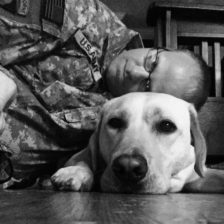Did you know that an estimated 43.5 million Americans are taking care of aging relatives, friends, veterans, and they are sacrificing their time, money, careers, personal health, and well-being to do so?
Friends, family members, significant others, and spouses are doing the work of a professional caregiver and some of them do not receive any type of compensation.
Rob Lowe recently shared his experiences on caregiving. His first experience was with his father who was diagnosed with lymphoma at age 50. He expressed concern that his father and stepmother went through a divorce because of the stress his stepmother experienced while being his father’s caregiver. This is not uncommon, an unpaid caregiver taking on many responsibilities and also ending a relationship due to the stress and strain that an illness can bring to a relationship.
Lowe’s mother was diagnosed with breast cancer and when she needed a caregiver and support system, the task fell to Lowe and his two brothers. They went through everything with her: initial diagnosis, doctor visits, shopping, driving her to appointments, treatments, and hospice care, which eventually became very difficult.
I’ve witnessed two grandparents pass through hospice care. At a young age, I was doing some caregiver duties: sitting with my grandfather when he was in the most unbearable pain, keeping my grandmother company, going shopping for her, assisting her with meals, helping her out when she needed to go to the restroom, and then ultimately, watching both of them pass away in their home.
I see my father work diligently and lovingly as my mother’s caregiver. He does so much day in and day out, and he is not compensated one bit. He does it out of love for his wife and family. He cooks, cleans, shops, pays bills and runs my mom to and from appointments. His self-care is a trip to Barnes and Noble, the library, and out to our house to check on the small dogs when we are not home.
Lowe writes in his piece for Newsweek that “there are so many little ways a dedicated caregiver can be a game changer–someone who can dramatically increase the chances of a successful outcome for your loved one.”
Game changer.
I love that.
The load for some caregivers is enormous. How do they cope? When do they get a break?
We as caregivers have to remember to not forget about ourselves. Caregiving is an intimidating role, but let me tell you, it.is.worth.it.
The daily reminders I have to help Sam, “take your meds, don’t forget your wallet, do you have Memphis’s leash, do you have your phone?” are part of my routine. We incorporate Alexa (she also reminds Sam to take his meds), our kids, and even our phones. When your memory fails you, you just need a little extra help.
Being an advocate at appointments is necessary. I am still learning the ropes of the VA, medical language, and also how to speak to providers. Sometimes it is absolutely draining and overwhelming, but every so often, we run into some folks who just get it: they know the language, they know how to assist, and they want to truly help others. I love that. I want to make sure that Sam is receiving the best care possible. He will not always remember what the doctor says, so I have to be there to ask questions and take notes (hello, with all that terminology, I need a notebook!).
I love what Rob Lowe says about being a caregiver…
It’s an intimidating role to step into, and there’s no set way to do it. You don’t have to be perfect. You don’t have to know all the answers. You are likely to make some mistakes–that’s fine! Just know that the care you give has the potential to be one of the most rewarding acts of your life.
I believe that. This is not easy. There’s no manual that comes with PTSD, TBI, moral injury, back injuries, knees that buckle, elbows that do not want to work, memory loss, anxiety, and stress. I’ve made mistakes. I have questioned Sam’s memory, I have nagged, I have had a snarky attitude with folks at the VA. I care. I love. I advocate. That I know.
Be a game changer. Speak up and step up for your loved one. We are not perfect. It is okay to make mistakes, but it is even greater to love and care and be there for your family member, loved one, friend, spouse, significant other.
Be present.
The link to Rob Lowe’s Newsweek article here: https://www.newsweek.com/rob-lowe-caregiving-guest-essay-1222522
If you are a caregiver and need to reach out, check out the Elizabeth Dole Foundation. There are so many resources and so many people who have gone through various experiences…they are hidden heroes!
https://www.elizabethdolefoundation.org/
The Red Cross has a Military Veteran Caregiver Network that is also outstanding for Caregivers. A lot of information that can be beneficial, with training opportunities and even peer mentoring training (I’ve done that, and would highly recommend!)…check that out here:

